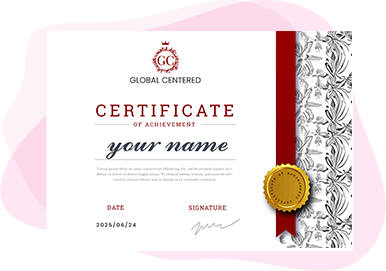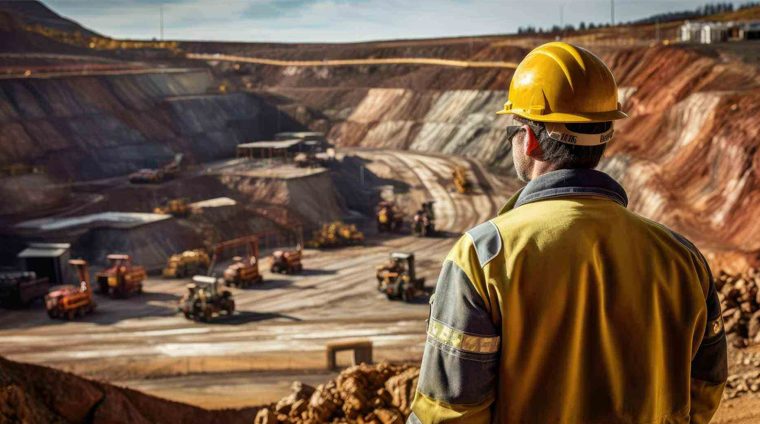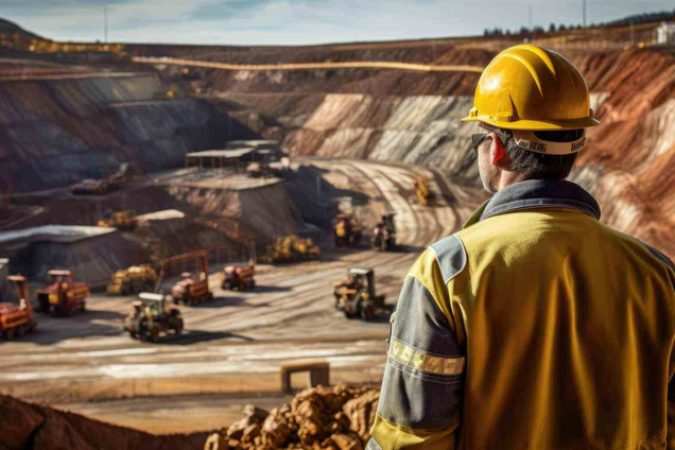Description
Introduction
This course provides a fundamental understanding of geophysical methods and their role in mineral exploration. It introduces participants to different geophysical techniques used to locate mineral deposits, including magnetic, gravity, electrical, electromagnetic, and seismic methods. Special emphasis will be placed on their application in the exploration of phosphate, gold, and bauxite deposits.
Date
Day | Time | Price | Country |
|---|---|---|---|
Mon – Wed | 8:00 – 10:00 | $5/hrs | Turkey |
Tue – Thu | 18:00 – 19:00 | $5/hrs | Turkey |
Wed – Fri | 20:00 – 21:00 | $5/hrs | Turkey |
Sat – Sun | 18:00 – 19:00 20:00 – 21:00 | $8/hrs | Turkey |
This Training Course Will Highlight
- Introduction to geophysics and its role in mineral exploration.
- Overview of geophysical survey methods (ground and airborne techniques).
- Basic data collection and interpretation techniques.
- Case studies on geophysical applications in phosphate, gold, and bauxite exploration.
- Environmental considerations in geophysical surveying.
Objectives
- Understand the basic principles of geophysical exploration.
- Learn about different geophysical methods and their applications in mineral prospecting.
- Gain an overview of how geophysical data is collected and interpreted.
- Recognize the importance of geophysical surveys in reducing exploration risks.
- Develop knowledge of basic geophysical equipment and field techniques.
Training Methodology
- Instructor-led lectures on geophysical principles.
- Hands-on demonstrations of geophysical equipment.
- Basic data processing and interpretation exercises.
- Fieldwork discussions on real-world geophysical surveys.
- Interactive Q&A sessions with exploration geophysicists.
- Case Study: Geophysical survey for phosphate, gold, or bauxite exploration.
Organizational Impact
- Enhances early-stage exploration capabilities through geophysical methods.
- Improves efficiency in mineral exploration and deposit identification.
- Strengthens interdisciplinary collaboration between geologists and geophysicists.
- Supports better decision-making in exploration project planning.
- Reduces exploration costs by improving target accuracy.
Personal Impact
- Develops fundamental skills in geophysical exploration.
- Improves interpretation of geophysical survey results.
- Strengthens knowledge of ore deposit formation and geological settings.
- Expands career opportunities in mineral exploration and geophysics.
- Builds confidence in basic geophysical data collection and analysis.
Who Should Attend?
- Entry-level geologists and mining engineers.
- Junior exploration geophysicists in mining companies.
- Government and regulatory personnel involved in mining oversight.
- Environmental scientists working in mine development and land use planning.
- Undergraduate geology and mining students.
- Technical staff in geological and geophysical survey organizations.
- Professionals transitioning into the field of mineral exploration.
Course Outline
Day 1
Introduction to Geophysics in Mineral Exploration- Basic concepts of geophysics – understanding subsurface imaging.
- Types of geophysical surveys – airborne, ground, and borehole surveys.
- Geophysical properties of rocks and minerals density, magnetism, conductivity.
- Geophysics vs. geology – how they work together in exploration.
- Overview of geophysical techniques used in a phosphate exploration project.
- Identifying geophysical anomalies from real datasets.
Day 2
Gravity and Magnetic Methods in Mineral Exploration- Gravity surveys and their application in detecting dense ore bodies.
- Magnetic surveys and interpretation for mineral exploration.
- Use of airborne and ground-based gravity and magnetic surveys.
- How magnetite and hematite deposits are detected.
- Limitations and advantages of these methods in exploration.
- Gravity and magnetic exploration of bauxite deposits.
Day 3
Electrical and Electromagnetic Methods- Resistivity and induced polarization (IP) surveys for detecting sulfide ores.
- Electromagnetic (EM) methods detecting conductive ore bodies.
- Application of geoelectrical techniques in phosphate exploration.
- Ground Penetrating Radar (GPR) applications in shallow mineral exploration.
- Integration of electrical and electromagnetic methods with geological data.
- EM survey for gold exploration in structurally controlled deposits.
Day 4
Seismic Methods and Remote Geophysical Techniques- Seismic reflection and refraction methods in mineral exploration.
- How seismic methods help in deep mineral targeting.
- Airborne geophysical surveys how they cover large exploration areas.
- Downhole geophysical logging in mineral exploration.
- Interpreting seismic data for ore deposit targeting.
- Seismic imaging for subsurface mineral deposits.
Day 5
Data Integration, Interpretation, and Future Trends- Combining geophysical, geological, and geochemical data for exploration.
- 3D geophysical modeling visualizing ore deposits.
- Challenges and limitations of geophysical techniques.
- Environmental considerations and permitting in geophysical surveys.
- Practical applications of geophysics in modern mining.
Cancellation policy
no refund is accepted
Certificate


Free
Skill level Beginner
100% positive reviews
Language: English
Assessments: Self
Step Into a World of Knowledge and Growth
Imagine a place where learning is not just about theory
Courses you might be interested in
Introduction This advanced-level course is designed for senior geophysicists, exploration managers, and mining professionals who require a deep understanding of advanced geophysical exploration techniques, data processing, and 3D ore body...
-
0 Lessons
Free
Introduction This intermediate-level course builds on fundamental geophysical knowledge, focusing on data processing, advanced interpretation, and integration of geophysical methods in mineral exploration. It provides in-depth training on geophysical surveys...
-
0 Lessons
Free
Free

